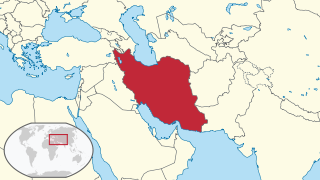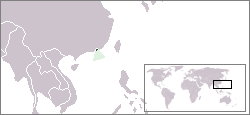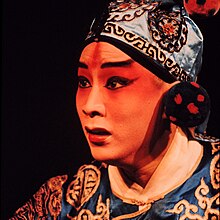The legal status of transgender people varies greatly around the world. Some countries have enacted laws protecting the rights of transgender individuals, but others have criminalized their gender identity or expression. In many cases, transgender individuals face discrimination in employment, housing, healthcare, and other areas of life.
The following outline is provided as an overview of and topical guide to transgender topics.
The history and subculture surrounding transgender people in Singapore is substantial. As with LGBT rights in the country in general, transgender rights in Singapore have also evolved significantly over time, including various laws and public attitudes in regards to identity documents, as well as anti-discrimination measures used by or pertaining to transgender people, in the areas of employment, education, housing and social services, amongst others.

Transgender rights in Iran are limited, with a narrow degree of official recognition of transgender identities by the government, but with trans individuals facing very high levels of discrimination, from the law, the state, and from the wider society.

Sexuality in transgender individuals encompasses all the issues of sexuality of other groups, including establishing a sexual identity, learning to deal with one's sexual needs, and finding a partner, but may be complicated by issues of gender dysphoria, side effects of surgery, physiological and emotional effects of hormone replacement therapy, psychological aspects of expressing sexuality after medical transition, or social aspects of expressing their gender.
In the context of gender, passing is when someone is perceived as a gender they identify as or are attempting to be seen as, rather than their sex assigned at birth. Historically, this was common among women who served in occupations where women were prohibited, such as in combat roles in the military. For transgender people, it is when the person is perceived as cisgender instead of the sex they were assigned at birth. The person may, for example, be a transgender man who is perceived as a cisgender man.

Lesbian, gay, bisexual, and transgender (LGBT) people in the People's Republic of China (PRC) face legal and social challenges that are not experienced by non-LGBT residents. While both male and female same-sex sexual activity are legal, same-sex couples are currently unable to marry or adopt, and households headed by such couples are ineligible for the same legal protections available to heterosexual couples. No explicit anti-discrimination protections for LGBT people are present in its legal system, nor do hate crime laws cover sexual orientation or gender identity.

Kathoey or katoey is an identity used by some people in Cambodia, Laos and Thailand, whose identities in English may be best described as transgender women in some cases, or effeminate gay men in other cases. These people are not traditionally transgender, however are seen as a third sex, being one body containing two souls. Transgender women in Thailand mostly use terms other than kathoey when referring to themselves, such as phuying. A significant number of Thai people perceive kathoey as belonging to a separate sex, including some transgender women themselves.
Mak Nyah, alternatively spelled maknyah, is a Malay vernacular term for trans women in Malaysia. It arose in the late 1980s in order to distinguish trans women from other minorities.

A transgender person is someone whose gender identity differs from that typically associated with the sex they were assigned at birth. Some transgender people who desire medical assistance to transition from one sex to another identify as transsexual. Transgender is also an umbrella term; in addition to including people whose gender identity is the opposite of their assigned sex, it may also include people who are non-binary or genderqueer. Other definitions of transgender also include people who belong to a third gender, or else conceptualize transgender people as a third gender. The term may also include cross-dressers or drag kings and drag queens in some contexts. The term transgender does not have a universally accepted definition, including among researchers.

Lesbian, gay, bisexual, transgender and queer (LGBTQ) people face difficulties in prison such as increased vulnerability to sexual assault, other kinds of violence, and trouble accessing necessary medical care. While much of the available data on LGBTQ inmates comes from the United States, Amnesty International maintains records of known incidents internationally in which LGBTQ prisoners and those perceived to be lesbian, gay, bisexual or transgender have suffered torture, ill-treatment and violence at the hands of fellow inmates as well as prison officials.

Lesbian, gay, bisexual, and transgender (LGBT) people in Hong Kong may face legal challenges not experienced by non-LGBT residents.

A transsexual person is someone who experiences a gender identity that is inconsistent with their assigned sex, and desires to permanently transition to the sex or gender with which they identify, usually seeking medical assistance to help them align their body with their identified sex or gender.
Transgender health care includes the prevention, diagnosis and treatment of physical and mental health conditions, as well as gender-affirming care, for transgender individuals. A major component of transgender health care is gender-affirming care, the medical aspect of gender transition. Questions implicated in transgender health care include gender variance, sex reassignment therapy, health risks, and access to healthcare for trans people in different countries around the world.
Eliana Rubashkyn is a New Zealand pharmacist and chemist, known for being the first intersex person assigned male at birth legally recognised as a woman with a UN mechanism under the international refugee statute. Born in Colombia, Rubashkyn was formerly stateless. She currently works as a programme officer at ILGA world, and as a harm reduction scientist developing human right campaigns of support addressed to LGBTI asylum seekers, refugees and intersex persons around the world.
Joanne Leung Wing-yan is the first openly transgender politician in Hong Kong.
Accounts of transgender people have been identified going back to ancient times in cultures worldwide. The modern terms and meanings of transgender, gender, gender identity, and gender role only emerged in the 1950s and 1960s. As a result, opinions vary on how to categorize historical accounts of gender-variant people and identities.
The Transgender Resource Center was started in 2008 by Joanne Leung Wing-yan, a transgender woman from Hong Kong. The Hong Kong-based organization provides information on and to transgender people in Hong Kong and mainland China. It also advocates for legal reforms to protect the transgender community.

This article addresses the history of transgender people across the British Isles in the United Kingdom, the British colonies and the Kingdom of England until the present day. Transgender people were historically recognised in the UK by varying titles and cultural gender indicators, such as dress. People dressing and living differently from their sex assignment at birth and contributing to various aspects of British history and culture have been documented from the 14th century to the present day. In the 20th century, advances in medicine, social and biological sciences and transgender activism have influenced transgender life in the UK.
Henry Edward Tse is a transgender rights activist based in Hong Kong. He is the founder of Transgender Equality Hong Kong. In February 2023, Tse won a court appeal to remove full sex reassignment surgery as a requirement for changing gender on identification cards.










